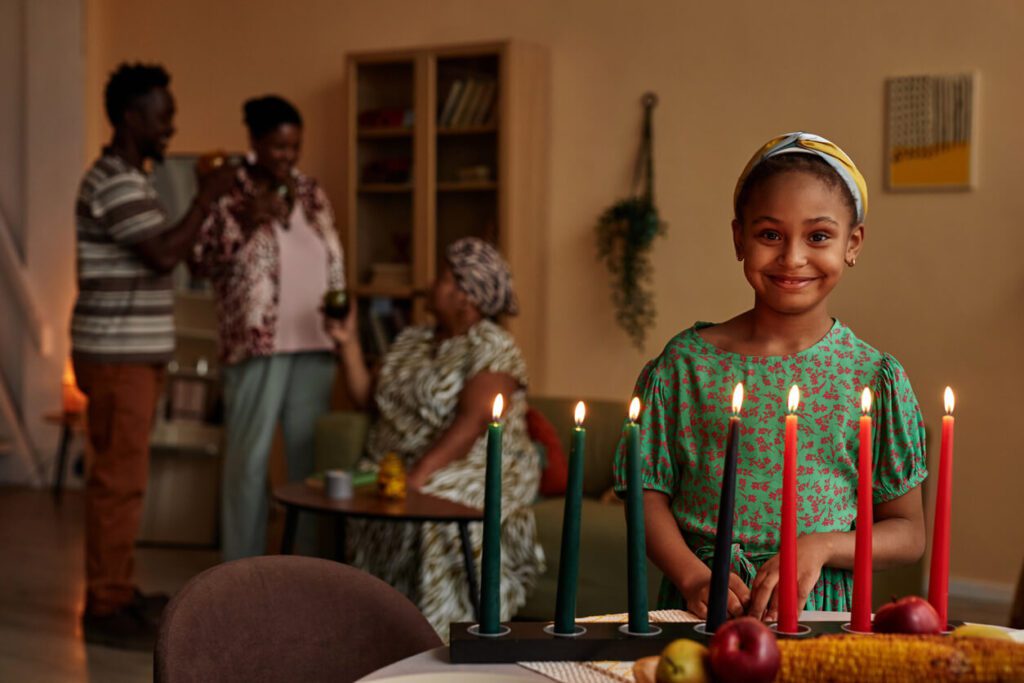
KWANZAA: A Cultural Celebration
As 2023 concludes, the diverse US kicks off its holiday season, primarily centered around Christmas, which was declared an official holiday by Congress in 1870. Originally religious, the Christmas holiday turned commercial in the 19th century, evolving into a $900 billion annual event. Black-owned businesses constituted 3% of establishments and 1% of revenue during past holiday seasons. Kwanzaa is an alternative celebration deeply rooted in black culture and devoted to the seven principles: Unity, Self-Determination, Collective Responsibility, Cooperative Economics, Purpose, Creativity, and Faith. Though originally crafted for African Americans, Kwanzaa welcomes individuals of all races, nurturing a sense of community throughout the holiday season.
KWANZAA: A Cultural Celebration
Maulana Karenga, a University of California professor of Africana Studies, in 1966, created the Kwanzaa celebration. It was designed to empower the black community in the United States by reaffirming and restoring a sense of self. As it is not a religious holiday, it can be celebrated along with the traditional Christmas celebration. It is often said that having a sense of history allows one to move forward more precisely, make history, and avoid repeating past mistakes. Kwanzaa is a week-long celebration that runs from December 26 – January 1.
The traditional holiday celebrating Christ’s birth was the official holiday sanctioned by Congress in 1870 as Christmas. However, since then, Christmas has become a more commercialized holiday that kicks off annually on Thanksgiving Day. Since 1924, the celebration begins with Macy’s Thanksgiving Day parade, where Santa appears as the finale. Alabama A&M was the first HBCU to lead the Macy’s Thanksgiving Day Parade at its 97th annual event in 2023 (the parade was canceled during WWII and COVID-19 in 2020). The Christmas holiday season generates over $900 billion in sales. Black-owned businesses, which represent 3% of the businesses in the US, accounted for 1% of the gross revenue in the US.
Historically, blacks have not been afforded the opportunity for an equitable share of the holiday festivities economically or socially. It’s time to change the narrative. Whether you celebrate the traditional Christmas or seek an alternative celebration, the Kwanzaa Celebration builds strong social and economic communities. Some major retail establishments have dedicated shelf space to black-owned business brands. We celebrate Kwanza by supporting their brands. More importantly, the Kwanza celebration focuses on the positive contributions of our culture. Knowing our history empowers us because it functions as a guide to progress. Without a sense of history, we’re condemned to repeat past mistakes.
The celebration embraces Nguzo Saba, also known as the seven principles. These principles are meant to be incorporated into our daily lives throughout the year. They include:



1. Umoja (Unity)– The importance of working together.
2. Kujichagulia (Self-determination) – The importance of pursuing our dreams and aspirations.
3. Ujima (Collective Work and Responsibility) – Building and maintaining a solid community.
4. Ujamaa (Cooperative Economics) – Supporting businesses within the black community.
5. Nia (Purpose) – The pursuit of meaningful goals for themselves and their community.
6. Kuumba (Creativity) – Use skills and influence to create positive and impactful change.
7. Imani (Faith) – The belief in our people and the victory of our struggle.
The seven principles behind Kwanzaa are what strengthen the community. It empowers African Americans to unify and work collectively to build and maintain social and economic growth. The Kwanzaa holiday is designed to build confidence and have faith in one’s ability to transform personal life and finances. The Kwanzaa celebration was created for African Americans, but like celebrations of other racial and ethnic groups, all are welcome to join.

